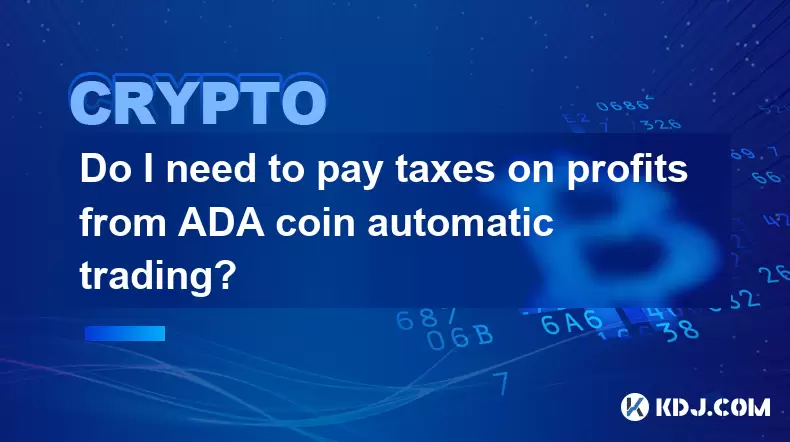-
 Bitcoin
Bitcoin $119000
-2.21% -
 Ethereum
Ethereum $4315
1.01% -
 XRP
XRP $3.151
-3.11% -
 Tether USDt
Tether USDt $0.0000
0.00% -
 BNB
BNB $808.5
-0.71% -
 Solana
Solana $175.8
-4.21% -
 USDC
USDC $0.9999
0.00% -
 Dogecoin
Dogecoin $0.2250
-3.92% -
 TRON
TRON $0.3469
1.77% -
 Cardano
Cardano $0.7818
-3.81% -
 Chainlink
Chainlink $21.47
-2.10% -
 Hyperliquid
Hyperliquid $43.30
-6.81% -
 Stellar
Stellar $0.4370
-2.84% -
 Sui
Sui $3.682
-4.40% -
 Bitcoin Cash
Bitcoin Cash $590.8
2.67% -
 Hedera
Hedera $0.2484
-5.20% -
 Ethena USDe
Ethena USDe $1.001
0.00% -
 Avalanche
Avalanche $23.10
-4.29% -
 Litecoin
Litecoin $119.2
-3.96% -
 Toncoin
Toncoin $3.409
0.90% -
 UNUS SED LEO
UNUS SED LEO $9.016
-1.29% -
 Shiba Inu
Shiba Inu $0.00001304
-3.82% -
 Uniswap
Uniswap $11.18
1.33% -
 Polkadot
Polkadot $3.913
-3.51% -
 Cronos
Cronos $0.1672
-3.08% -
 Dai
Dai $1.000
0.02% -
 Ethena
Ethena $0.7899
-4.70% -
 Bitget Token
Bitget Token $4.400
-1.23% -
 Pepe
Pepe $0.00001132
-5.93% -
 Monero
Monero $257.9
-6.44%
Do I need to pay taxes on profits from ADA coin automatic trading?
Profits from ADA coin automatic trading may be taxable; tax obligations vary by country, trading frequency, and holding period. Consult a tax professional for compliance.
May 20, 2025 at 12:56 am

Introduction to ADA Coin and Automatic Trading
ADA, the native cryptocurrency of the Cardano blockchain, has gained significant attention in the cryptocurrency market. Many investors engage in automatic trading to capitalize on market fluctuations and generate profits. A common question that arises among these traders is whether they need to pay taxes on the profits earned from ADA coin automatic trading. The answer to this question varies based on several factors, including the trader's country of residence, the nature of the trading activity, and the specific tax laws applicable to cryptocurrencies.
Understanding Tax Obligations on Cryptocurrency Profits
In many jurisdictions, profits from cryptocurrency trading, including ADA, are considered taxable income. This means that if you engage in automatic trading and generate profits, you may be required to report these earnings and pay taxes on them. The tax treatment of these profits can vary, with some countries treating them as capital gains, while others may classify them as regular income. It is crucial for traders to understand the specific tax laws in their country to ensure compliance and avoid potential penalties.
Factors Influencing Tax Liability on ADA Trading Profits
Several factors can influence your tax liability on profits from ADA coin automatic trading. These include:
- Residency: The country where you reside plays a significant role in determining your tax obligations. Different countries have varying tax laws regarding cryptocurrencies.
- Frequency and Volume of Trading: If you engage in frequent and high-volume trading, your profits may be classified differently than those from occasional trading.
- Holding Period: In some jurisdictions, the length of time you hold ADA before selling it can affect whether your profits are taxed as short-term or long-term capital gains.
- Type of Trading: Whether you are trading as an individual or through a business entity can also impact your tax obligations.
Reporting and Paying Taxes on ADA Trading Profits
To comply with tax laws, traders need to accurately report their profits from ADA coin automatic trading. Here are the steps you might need to follow:
- Keep Detailed Records: Maintain thorough records of all your trading activities, including dates, amounts, and profits or losses. This documentation will be essential when filing your taxes.
- Calculate Your Profits: Determine the total profit you have made from your ADA trading activities. This involves subtracting the cost basis (the price you paid for the ADA) from the selling price.
- Determine Your Tax Rate: Depending on your country's tax laws, your profits may be subject to different tax rates. For example, in the United States, short-term capital gains are taxed as ordinary income, while long-term capital gains have different rates.
- File Your Tax Return: Include your cryptocurrency profits on your tax return. In many countries, you will need to use specific forms or schedules to report these earnings.
- Pay Your Taxes: Once you have calculated your tax liability, you will need to pay the amount owed by the deadline set by your tax authority.
Common Tax Deductions and Credits for Cryptocurrency Traders
Traders may be eligible for certain tax deductions and credits that can help reduce their overall tax liability. Some common deductions include:
- Trading Fees: Fees paid to trading platforms or exchanges can often be deducted as business expenses.
- Software and Hardware Costs: Expenses related to trading software, hardware, and other tools can be deductible if they are used for trading activities.
- Education and Training: Costs associated with learning about cryptocurrency trading, such as courses or seminars, may be deductible.
It is important to consult with a tax professional to ensure you are taking advantage of all available deductions and credits.
Navigating Tax Compliance in Different Countries
Tax laws regarding cryptocurrencies vary significantly from one country to another. Here are some examples of how different countries approach the taxation of ADA coin automatic trading profits:
- United States: The IRS treats cryptocurrencies as property, meaning profits from trading are subject to capital gains tax. Short-term gains are taxed as ordinary income, while long-term gains have different rates based on income levels.
- United Kingdom: In the UK, profits from cryptocurrency trading are subject to Capital Gains Tax. The tax rate depends on the individual's income tax band.
- Canada: The Canada Revenue Agency treats cryptocurrencies as commodities. Profits from trading are subject to capital gains tax, with half of the gain being taxable.
- Australia: The Australian Taxation Office considers cryptocurrencies to be property, and profits from trading are subject to Capital Gains Tax.
Traders should familiarize themselves with the specific tax laws in their country and seek professional advice if needed.
Frequently Asked Questions
Q: Can I offset losses from ADA trading against my other income?
A: In many jurisdictions, you can use losses from cryptocurrency trading to offset gains from other investments. However, the rules can be complex, and it is advisable to consult with a tax professional to understand how to apply these losses correctly.
Q: Do I need to report every single transaction when filing my taxes?
A: While you do not need to report every single transaction, you should keep detailed records of all your trading activities. When filing your taxes, you will typically report the net profit or loss from your trading activities.
Q: Are there any tax benefits to holding ADA in a retirement account?
A: In some countries, holding cryptocurrencies in retirement accounts can offer tax advantages. For example, in the United States, holding ADA in an IRA can allow for tax-deferred growth. However, the rules surrounding retirement accounts and cryptocurrencies can be complex, so it is essential to consult with a financial advisor.
Q: How can I find a tax professional who specializes in cryptocurrency taxes?
A: To find a tax professional with expertise in cryptocurrency taxes, you can search for certified public accountants (CPAs) or tax attorneys who advertise their knowledge of cryptocurrency taxation. Professional organizations and online directories can also be useful resources for finding qualified professionals.
Disclaimer:info@kdj.com
The information provided is not trading advice. kdj.com does not assume any responsibility for any investments made based on the information provided in this article. Cryptocurrencies are highly volatile and it is highly recommended that you invest with caution after thorough research!
If you believe that the content used on this website infringes your copyright, please contact us immediately (info@kdj.com) and we will delete it promptly.
- Arc Blockchain: Circle's Layer-1 Play Amidst $428 Million Loss
- 2025-08-12 20:30:13
- XRP Price: Riding the Bull Cycle Wave or Hitting a Wall?
- 2025-08-12 20:50:12
- Cloud Mining in 2025: Chasing Passive Income and High Returns
- 2025-08-12 20:30:13
- Solana Price, Meme Coins, and 100x Gains: What's the Hype?
- 2025-08-12 20:50:12
- Japan, Bitcoin, and Treasuries: A New Era of Corporate Finance?
- 2025-08-12 18:30:12
- Bitcoin Bull Market: Decoding the Indicators for the Next Big Move
- 2025-08-12 18:30:12
Related knowledge

How to purchase Aragon (ANT)?
Aug 09,2025 at 11:56pm
Understanding Aragon (ANT) and Its PurposeAragon (ANT) is a decentralized governance token that powers the Aragon Network, a platform built on the Eth...

Where to trade Band Protocol (BAND)?
Aug 10,2025 at 11:36pm
Understanding the Role of Private Keys in Cryptocurrency WalletsIn the world of cryptocurrency, a private key is one of the most critical components o...

What is the most secure way to buy Ocean Protocol (OCEAN)?
Aug 10,2025 at 01:01pm
Understanding Ocean Protocol (OCEAN) and Its EcosystemOcean Protocol (OCEAN) is a decentralized data exchange platform built on blockchain technology,...

How to invest in Kyber Network Crystal v2 (KNC)?
Aug 12,2025 at 05:21pm
Understanding Kyber Network Crystal v2 (KNC)Kyber Network is a decentralized liquidity hub built on the Ethereum blockchain that enables instant token...

Where can I buy UMA (UMA)?
Aug 07,2025 at 06:42pm
Understanding UMA and Its Role in Decentralized FinanceUMA (Universal Market Access) is an Ethereum-based decentralized finance (DeFi) protocol design...

What exchanges offer Gnosis (GNO)?
Aug 12,2025 at 12:42pm
Overview of Gnosis (GNO) and Its Role in the Crypto EcosystemGnosis (GNO) is a decentralized prediction market platform built on the Ethereum blockcha...

How to purchase Aragon (ANT)?
Aug 09,2025 at 11:56pm
Understanding Aragon (ANT) and Its PurposeAragon (ANT) is a decentralized governance token that powers the Aragon Network, a platform built on the Eth...

Where to trade Band Protocol (BAND)?
Aug 10,2025 at 11:36pm
Understanding the Role of Private Keys in Cryptocurrency WalletsIn the world of cryptocurrency, a private key is one of the most critical components o...

What is the most secure way to buy Ocean Protocol (OCEAN)?
Aug 10,2025 at 01:01pm
Understanding Ocean Protocol (OCEAN) and Its EcosystemOcean Protocol (OCEAN) is a decentralized data exchange platform built on blockchain technology,...

How to invest in Kyber Network Crystal v2 (KNC)?
Aug 12,2025 at 05:21pm
Understanding Kyber Network Crystal v2 (KNC)Kyber Network is a decentralized liquidity hub built on the Ethereum blockchain that enables instant token...

Where can I buy UMA (UMA)?
Aug 07,2025 at 06:42pm
Understanding UMA and Its Role in Decentralized FinanceUMA (Universal Market Access) is an Ethereum-based decentralized finance (DeFi) protocol design...

What exchanges offer Gnosis (GNO)?
Aug 12,2025 at 12:42pm
Overview of Gnosis (GNO) and Its Role in the Crypto EcosystemGnosis (GNO) is a decentralized prediction market platform built on the Ethereum blockcha...
See all articles

























































































